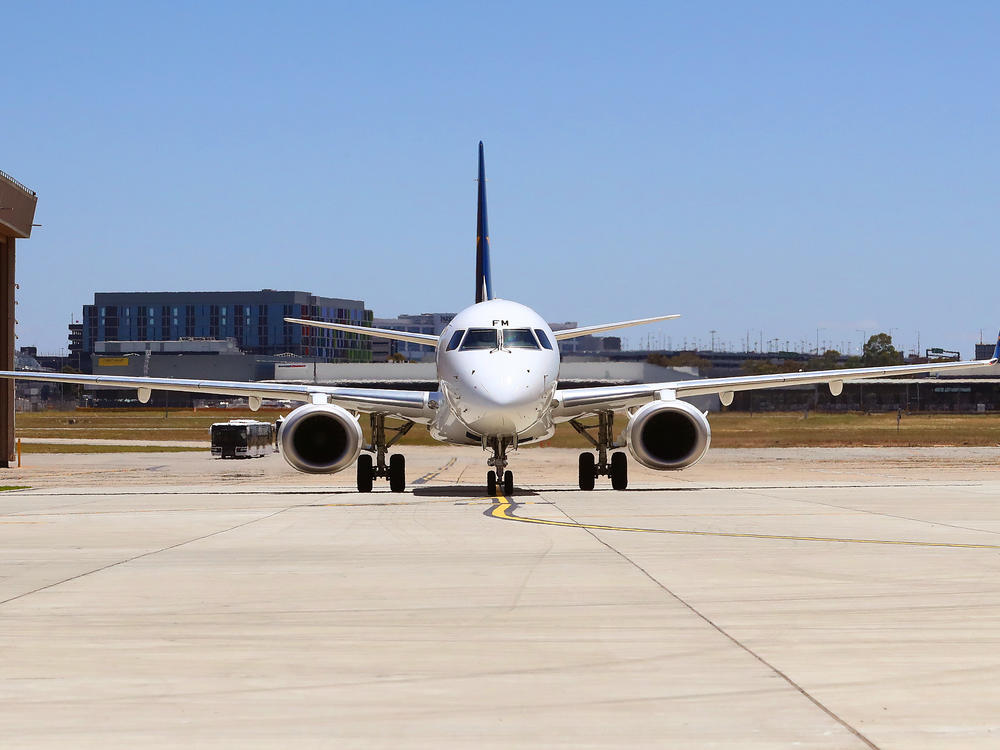Section Branding
Header Content
Australia will reopen to fully vaccinated travelers in 2 weeks
Primary Content
Australia will reopen to fully vaccinated travelers beginning Feb. 21, officials announced Monday.
The move comes nearly two years after it first closed its international borders to slow the spread of COVID-19, and several months after beginning a gradual reopening that allowed certain tourists and foreign workers to enter the country.
Prime Minister Scott Morrison noted at a news conference that Australia has progressively opened its borders through programs with New Zealand, Singapore, Japan and South Korea, and also began welcoming international students and economic migrants late last year. That welcome will soon be extended to visa holders and international tourists, on one condition.
"The condition is, you must be double vaccinated to come to Australia," Morrison said. "That's the rule. Everyone is expected to abide by it."
He added that quarantine requirements and cap arrangements on arrivals will continue, and are up to state governments to alter as they see fit.
Home Affairs Minister Karen Andrews said that visa holders who are not fully vaccinated will still require a travel exemption to enter and will be subject to relevant state and territory quarantine requirements upon arrival. They also will need to provide proof that there is a medical reason they can't be vaccinated, she added.
Officials acknowledged that they are seeking to balance public health with the country's economic recovery. The return of international travel will be a boon to Australia's struggling tourism industry, which has been largely reliant on domestic travelers.
"Australians have stepped up and traveled when they can, but international tourists will be welcome relief," Andrews said.
The Business Council of Australia praised the decision in a statement as "the light at the end of the tunnel" for small businesses, tourism operators and the events industry. But it wasn't entirely celebratory, noting that the move doesn't apply to the entire country.
Western Australia is still inaccessible to travelers from the rest of the country and the world after delaying its domestic border reopening late last month, as Bloomberg notes. The reopening plan was delayed indefinitely because of omicron, the BBC reports.
"In two weeks' time, it will be easier for a Londoner to visit the Great Barrier Reef than it will be for a Melburnian to travel to Perth," the council said. "This is a blight on our international reputation and devastating to WA's ability to attract both investment and talent."
Western Australia is the last state with a COVID-zero approach to the pandemic, as NPR has reported, with strict rules and border closings keeping cases relatively low.
Australia as a whole has seen a drop in COVID-19 cases since they hit their peak in early January. About 80% of its population is fully vaccinated, according to Johns Hopkins University.
The announcement also comes less than a month after the country's dramatic legal battle with Serbian tennis champion Novak Djokovic, who was ultimately deported after he attempted to play in the Australian Open despite not being vaccinated.
Morrison appeared to reference the high-profile saga in his remarks on Monday, when he stressed the importance of proof of double vaccination for international travelers.
"I think events earlier in the year should have sent a very clear message, I think, to every[one] around the world that that is the requirement to enter into Australia," he said.
This story originally appeared in the Morning Edition live blog.
Copyright 2022 NPR. To see more, visit https://www.npr.org.

